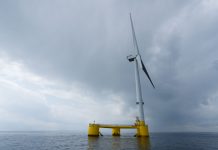Better co-operation between Britain and the EU on energy trading & carbon pricing could cut wholesale energy costs by hundreds of millions of pounds a year, says Energy UK.
New analysis from the group, which represents top power and gas brands, highlights how more efficient trading and greater coordination could cut suppliers’ costs by up to £1.1bn per year.
Lower bills for customers, plus enhanced energy security and speedier progress toward climate change targets are added benefits, say the group.
The Brexit vote resulted in the UK quitting the EU’s Internal Energy Market. This has led, EnergyUK notes, to the current patchwork of varying arrangements for trading electricity, plus a return to less efficient trading regimes. UK-based power exchanges such as EPEX Spot and Nord Pool are compelled to operate in a costlier, more complex way than during the nation’s 47-year membership.
Analysis in EnergyUK’s new report points to likely further costs. The EU’s promised Carbon Border Adjustment Mechanism (CBAM) could compound existing problems, says the observers, given the absence of a link between the UK’s Emissions Trading System and the EU’s equivalent.
The UK-EU Trade & Co-operation Agreement was the interim measure regulating Britain’s commercial relations with Brussels until exit was completed in 2020.
It envisaged continuing cooperation, structured around new permanent protocols for energy markets. But the deadline for these to come forces passed over a year ago.
Also compromised by the current limbo, says EnergyUK, are the aims of the recent Ostend declaration. It aims to foster practical links between the EU and post-Brexit Britain on wind energy in the North Sea, cutting down nations’ reliance on imported Russian gas.
With the UK likely to become a net exporter of electricity in the future, the importance and benefit of more efficient trading arrangements and greater co-ordination with Europe will only increase, the trade body believes.
It is urging the government to build on the recent Windsor Framework to expand its collaboration and engagement with EU on energy trading and carbon pricing, to mutual benefit.
Energy UK’s Deputy Director Adam Berman said: “Our analysis shows that increased energy and climate cooperation with the EU has the potential to deliver very substantial savings for households and businesses across the UK struggling with high energy bills.
“Cooperation on energy and climate change issues is the low hanging fruit of the UK-EU trading relationship – there is no other area in which both sides have such closely aligned ambitions”.
Working together more closely on shared goals like climate change mitigation and energy resilience means achieving Net Zero faster, and at lower cost”, Berman added.




